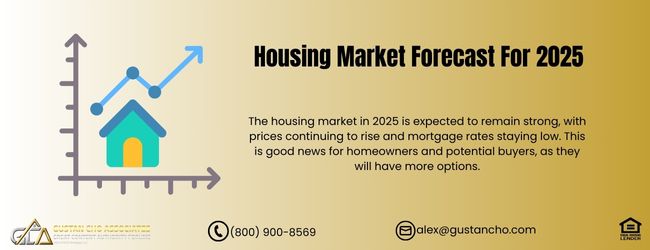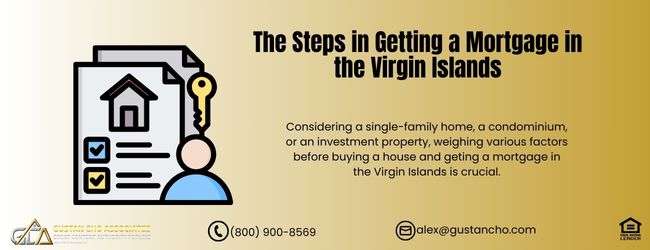How Inflation Is Affecting The Housing Market

In this blog, we will discuss and cover how inflation is affecting the housing market in 2025. As the Fourth of July holiday approaches in America in 2022, it’s nearly impossible to go a day without hearing the term inflation. Although our school curriculum teaches us the economic term inflation, many of us remain unaware of its impact on our daily lives. Inflation is when the price of a good or service increases. As the general price levels rise, each dollar or unit of currency will now buy fewer goods and services. We will discuss the impact of inflation on the housing market in the following paragraphs.
How Inflation is Affecting the Housing Market
Unfortunately, inflation corresponds to a reduction in purchasing power. Your dollar will no longer buy the same amount of goods or services. If you have tried to make any major purchase over the last few months, you will likely run into extreme inflation. Compared to just one year ago, food prices have increased by over 10%. You should budget about 14% more than you did the previous year if you shop for a car.
How inflation is affecting the housing market for 2025 interconnects factors such as challenges and opportunities for buyers, sellers, and investors. Based on current trends and expert insights, here’s a concise overview on how inflation is affecting the housing market:
Inflation Affecting the Housing Market? Let’s Find the Best Financing Options for You!
Contact us today to explore your mortgage options and secure the best deal in today’s market.
How Inflation Is Affecting The Housing Market: Increasing Home Values
The overall inflationary economy impacts the cost of labor, land, and construction materials, directly leading to increased home prices. Compared to March 2024, home prices increased by 2.5% and are predicted to rise by an additional 4.9% in the coming year. Since 1963, home prices have risen by 2,350% while inflation has decreased by 896%. This continues to outpace income growth and worsen the inflation crisis. In simpler terms, a median home priced at $431,000 in 2024 would take 6.3 years of median household income to purchase, while it used to take 3.5 years in the 1980s.
How Inflation Is Affecting The Housing Market: Increased Mortgage Rates
The Federal Reserve has increasingly burdened the general public by combating economic inflation. As of January 2025, the average 30-year fixed mortgage rate stands at 7.04%, significantly higher than the previous range of 3%-4%. The figure ranges because of the additional funding one has to put down to borrow money. John Strange, a senior mortgage loan originator at GCA Forums Mortgage Group, says the following about how inflation is affecting the housing market:
This, along with steep home prices, has caused the monthly mortgage payment to reach 35.3% of median household income, significantly straining finances relative to the preferred 28% cap. Additionally, high rates create a “lock-in effect” in which homeowners with low-rate mortgages (86% at below 6%) are unwilling to sell their homes, further constricting supply.
Housing costs comprise a large share of the Consumer Price Index (CPI), an important contributor to inflation. In December 2024, shelter inflation increased 4.8% yearly, with a 0.3% gain month on month in April 2025. This rise underscores the acceleration of home and rent prices, which overhang the CPI by more than a third. Although the pace of increase in asking rent has softened (median rent decreased to $1,594 in December 2024), housing prices outpace the inflation rate.
How Inflation Is Affecting The Housing Market: Supply Constraints
The persistent underbuilding trend in the past ten years has resulted in a housing deficit that reached an estimated 4 million units in 2024. High construction material costs and possible future policy changes like tariffs or limits on immigration could exacerbate the existing supply problem by increasing material costs or shrinking the available workforce (30% of construction workers are immigrants), which drives up expenses even with high interest rates.
How Inflation Is Affecting The Housing Market: Affordability Crisis
Persistent inflation strengthens the purchasing power gap between high-income and low- to middle-income households. At the same time, the high mortgage rate, coupled with home costs, pushes several more notches down the pyramid.
Since 2019, the income needed to afford a median-priced home has increased by 70%. The increase is partly due to Wall Street investors buying properties. Only 21% of Americans believed it was a good time to purchase a home in 2024, the lowest sentiment level recorded in Gallup polling history. Many first-time buyers temporarily give up the purchase in favor of renting, thus creating upward price pressure for rentals.
How Inflation Is Affecting The Housing Market: Regional Differences
Regions significantly segment the real estate market. For example, home values in Hawaii and Louisiana increased fourfold, 86%, respectively, from 2000 to 2020. Buyers should study local housing areas since zoning, land prices, construction costs, and housing demand can influence inflation.
Proposed policies under the Trump administration, such as tariffs and immigration restrictions, could reignite inflation, detrimental to overall inflation, construction prices, and mortgage rates. For instance, steel and aluminum tariffs have previously driven construction costs by a low single-digit percentage. These things can put an increased strain on affordability while slowing construction.
How Inflation Is Affecting The Housing Market: Forecast for 2025
How Inflation Is Affecting The Housing Market and Homebuyers. Buying a home is more difficult, with high prices and interest rates. However, items in the market could become more affordable when a potential economic recession occurs or the Federal Reserve rates are reduced (by targeting inflation to drop to 2% by 2026), easing the pressure on borrowing.
Opportunities may arise for buyers with enough capital during a recession as demand diminishes and prices will likely ease.
Sellers:
Elevated prices benefit sellers, but market activity may be stifled due to the “lock-in effect” and low inventory. Selling sooner rather than later could maximize value while mitigating price decline risk.
Investors:
Real estate continues to mitigate inflation risk, considering the appreciation of properties and increasing rental prices. Real estate investors should pay attention to hot markets while managing rising costs through shrewd financing.
How Inflation Is Affecting The Housing Market: Market Navigation Tips
- Buyers: Get pre-approved for mortgages to strengthen your offer, lock in rates early, consider adjustable-rate mortgages, or look to less competitive regions.
- Sellers: Partner with agents who conduct comparative market analyses and set prices as close as possible to the market high, taking advantage of current high values.
- Investors: Study local markets, use REITs for diversification, and Agora for capital management.
- Stakeholders can overcome strategically planned hurdles and market-researched difficulties, while inflation makes budgeting harder.
How Inflation is Affecting the Housing Market and Home Prices
As we come out of the coronavirus pandemic and want to travel, you are seeing incredibly high travel costs. The price of a hotel has gone up by over 20%. Airfare has gone up by over 37%. This spike is driven significantly by the cost of gas, which has nearly doubled from the pandemic lows. Diesel fuel costs have sent ripples down the economy, sparking inflation. The stock market has just recorded the worst 6-month period since 1970! Many readers of this blog have not seen such alarming economic times.
How Inflation Is Affecting The Housing Market: Inflation Versus Housing Prices Comparison
GCA Forums Mortgage Group understands the extreme pressure inflation is putting on Americans. We also understand the significance of the current situation in the housing market. Saving for a down payment was the most challenging obstacle before record inflation. With the purchasing power of Americans falling in nearly every sector of the economy, buying a home is harder than ever. In this blog, we will detail how buying a home can help fight against inflation, identify areas of the country with the lowest housing costs, and explain how to apply for a mortgage loan with GCA Forums Mortgage Group.
Real Estate Prices During Inflation is Affecting the Housing Market
Owning a home can help combat inflation for a few different reasons. The most popular mortgage program in the United States is a 30-year fixed-rate one. This means you can lock in your housing payment for 30 years, and your payment cannot change. If you have been renting for years, you have likely seen your rent increase yearly or at some point. If you purchase a home with a 30-year fixed mortgage, your total housing payment will change only if you have an increase in your annual property taxes or homeowners’ insurance policy.
Effects of How Inflation is Affecting the Housing Market
If you rent a home, your landlord can raise the rent on you every time you renew your lease. If you decide not to renew, you will incur moving costs whenever you rent a new place. Locking a 30-year fixed mortgage is fantastic for long-term financial success. If you rent a home and the property taxes and insurance costs increase, do you think your landlord will cover those expenses? Realistically, your landlord won’t absorb these increases; instead, they’ll pass them on to you, increasing your housing payment. When you own your home, every monthly payment will pay down the principal balance you owe, creating equity in an asset. When you make a rent payment, your landlord gets the equity.
How Inflation is Affecting the Housing Market and Prices
Since your home is also a tangible asset, it will usually increase in value over time. As stated above, owning a home can provide immediate shelter from inflation and protect you long-term. Recent history shows that inflationary pressures can and will increase the cost of living, and typically, home values will appreciate at a rate that outpaces inflation. Even with record inflation year over year, housing costs rose by nearly 25% since the start of the pandemic. You can also pass down homes to your children, ensuring their financial security. Your children may benefit from the short-term effects of owning a home or inheriting a rental property to continue to generate income. While there have been crashes in the housing market, historically speaking, appreciation of homes has outpaced inflation!
Worried About Rising Home Prices Due to Inflation? Let’s Find a Solution for You!
Contact us today to learn how we can help you navigate the market and get pre-approved.
Benefits of Owning a Home During Economic Uncertainty
Another benefit of owning a home is the ability to borrow money against your property. During challenging economic times, you may need access to additional financial resources other than just your sources of income. Depending on your home’s value, you may be able to access the equity through a cash-out refinance or a second mortgage. You may have access to a home equity line of credit. Having access to collateral can give you peace of mind.
A Mortgage Is an Excellent Tradeline to Have
Owning a home will also improve your credit score. The majority of homeowners have a mortgage reported on their credit report. In the eyes of the credit bureaus, mortgage debt is considered good debt and will help build your credit score. Assuming you have on-time payments to your mortgage, the debt is a great way to establish good credit. If you make timely payments, a mortgage will significantly improve your credit score.
Areas of The Least Impact Inflation Has on The Housing Market
Areas of the country with the lowest impacts from the current inflation. There are many factors to consider if you plan to relocate. When researching where to live, you will want to weigh the living expenses, average household income, housing costs, and state tax threshold. With the cost of every product increasing, many Americans are relocating to “cheaper states.” Many housing experts list the top five cheapest states to live in: Mississippi, Oklahoma, Arkansas, and Missouri (currently, Gustan Cho Associates is licensed to lend in all these states). All housing, groceries, and transportation expenses are factored into this list of “cheaper states.”
How Inflation Is Affecting The Housing Market in Part Due To Skyrocketing Gas Prices
Oil costs have skyrocketed nationwide, leading to a surge in transportation costs. All of these factors add up to your total monthly budget.
Why Mortgage Brokers Have More Options at Low Rates
As Gustan Cho Associates expands our coverage in more and more states, we have simplified the application process with our team. Our goal is to be licensed in 48 states by the end of the calendar year. This will allow us to help more Americans purchase or refinance a home. With technology rapidly growing in the mortgage industry, applying for a home loan is easier than ever. First, you can contact Mike Gracz at (800) 900-8569 for a one-on-one mortgage consultation. Mike will walk you through your qualifications and answer any mortgage questions you may have. We specialize in FHA, conventional, VA, and USDA mortgage loans.
Non-QM Mortgage Options During a Period of High Inflation and Low Rates
But you may not know we have a full line of alternative income mortgage lending. We have access to many NON-QM mortgage programs, including “lite” documentation, “no” documentation, and bank statement mortgage lending. We provide a comprehensive solution for your mortgage requirements, offering a wider range of programs than most banks. After you review your basic qualifications, Mike will pair you with a licensed loan officer in your state.
How Inflation Is Affecting The Housing Market When Applying For a Mortgage
You will fill out an online application and upload your required qualifying documentation. From there, your highly skilled loan officer at GCA Forums will analyze your credit report and calculate your income and available assets. We will then issue a pre-approval letter or a customized financial plan to qualify you immediately. Our team is highly skilled in unique mortgage scenarios and has assisted many clients who thought they may not qualify. If you have been turned down by a bank or lending institution, we encourage you to contact our team.
Housing and Mortgage Market Forecast in 2025
Many experts believe we are in some dark financial times; however, this is still a wonderful time to purchase a home. As the cost of rent continues to skyrocket, locking yourself into a long 30-year fixed mortgage can help you create a steady monthly budget. Unfortunately, it looks like the buying power of the US dollar is going to continue to erode.
The Federal Reserve is trying to instigate a recession to calm the economy. Many Americans feel this is the worst economic state they have ever felt. As somebody in their mid-30s, I can agree with that.
Wow, I was going through college during the 2008 housing crash. We finally rebounded, and now we are back into challenging financial times. Our team can help you find the home loan that will work best for you and your family. We strive to make ourselves available in the evenings and outside regular business hours. So even if you have a question over the weekend, we encourage you to contact our team.
This guide on how inflation affects the housing market was updated on May 20, 2025.
Inflation Affecting the Housing Market? Let’s Help You Make the Right Move!
Contact us today to discuss how we can help you secure a mortgage despite inflation.






Responses